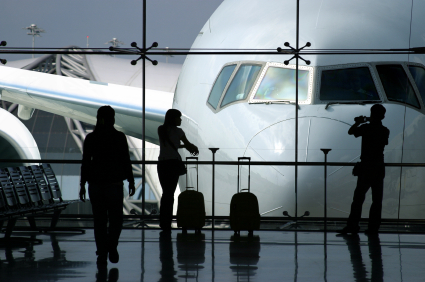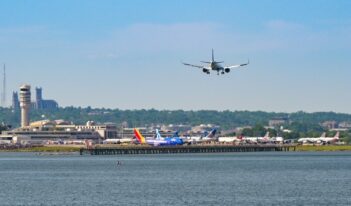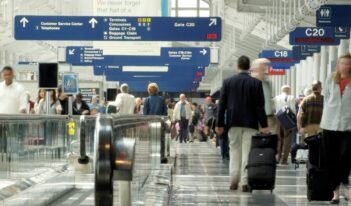
Requirements increase potential compensation, extend to international carriers.
US air travellers gained increased consumer rights last week when the Department of Transportation’s new “passenger protection rule” came into force.
The new rule doubles the level of compensation payable to passengers bumped from overbooked flights, with compensation of double the cost of a one-way fare, up to $650, if an alternative flight would delay the passenger between one and two hours, and four times the cost of the fare, up to $1300, for delays over two hours.
On international flights originating in the US, bumped passengers can receive double the cost of a one-way fare, up to $650, if the alternative flight would delay a passenger between one and four hours, and four times the cost of the fare, up to $1300, for delays over four hours.
By contrast, under European Union regulations, passenger compensation is determined by flight distance. For example, compensation for being bumped from a transatlantic flight is always €600 under EU rules, no matter whether a passenger is delayed a short time or for several hours. Although the EU rules also allow bumped passengers to claim “further compensation,” the exact nature of this compensation is currently uncertain. The European Court of Justice is now considering whether passengers can only claim further compensation if the flat rates do not adequately cover losses suffered.
According to an explanation the US Department of Transportation published with its newest rule, should passengers ever find that the US and EU rules on compensation for overbooking call for differing payments, they should expect carriers to provide the greater payment.
The new Department of Transportation rule also extends existing tarmac delay requirements to non-US air carriers that fly to or from the US. These requirements enable the Department to impose fines on airlines if planes remain on the runway and passengers are not allowed to deplane after a certain time period. The new rule imposes a four-hour limit on tarmac delays for foreign airlines operating international flights from US airports, a somewhat longer allowable period than the existing three-hour limit for domestic flights. The EU imposes no comparable “tarmac delay” requirements on European carriers.
The new Department of Transportation rule also provides for increased transparency in ticket sales, but these provisions will not take effect until January, 2012.



